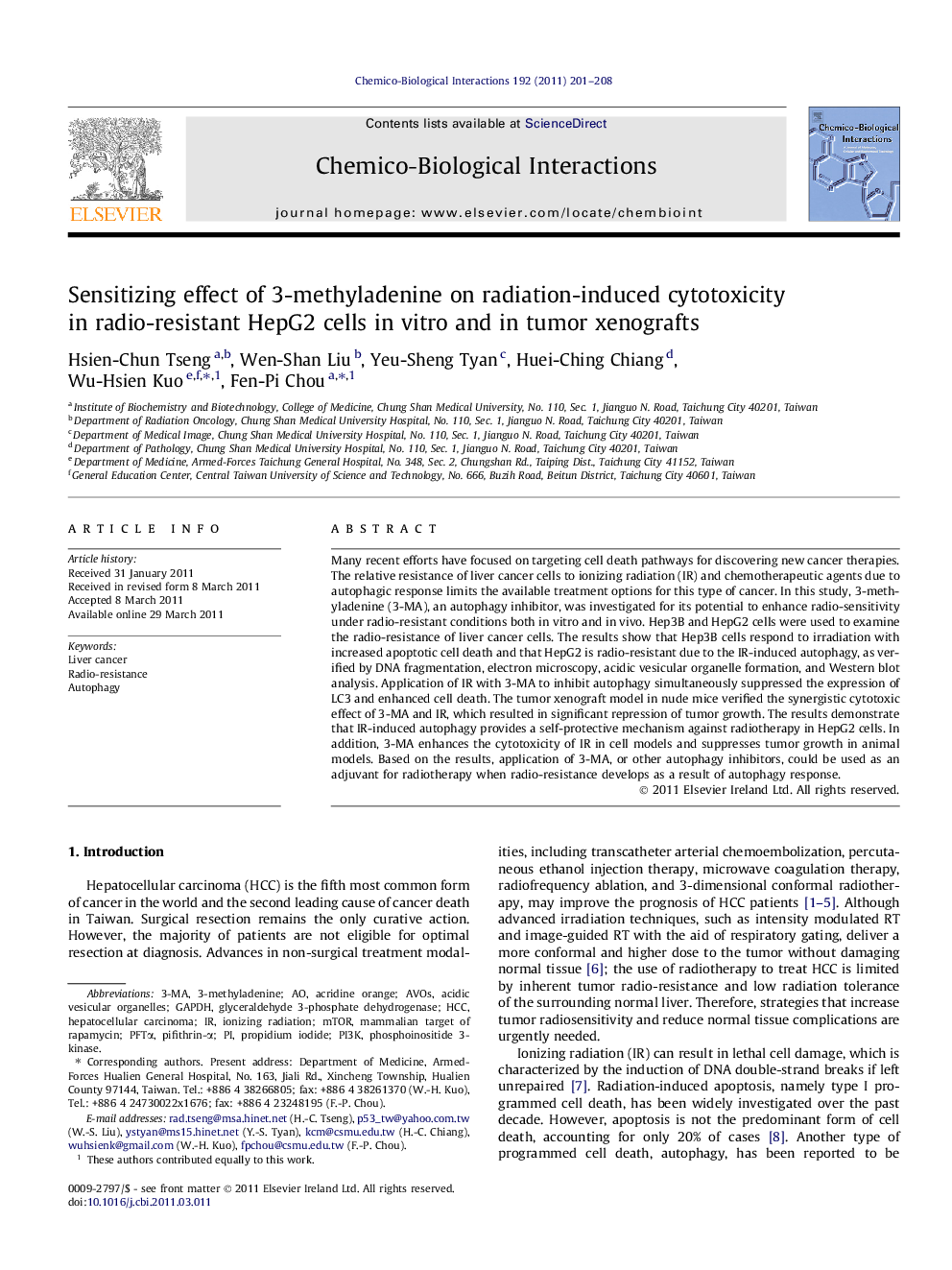| Article ID | Journal | Published Year | Pages | File Type |
|---|---|---|---|---|
| 2580890 | Chemico-Biological Interactions | 2011 | 8 Pages |
Abstract
Many recent efforts have focused on targeting cell death pathways for discovering new cancer therapies. The relative resistance of liver cancer cells to ionizing radiation (IR) and chemotherapeutic agents due to autophagic response limits the available treatment options for this type of cancer. In this study, 3-methyladenine (3-MA), an autophagy inhibitor, was investigated for its potential to enhance radio-sensitivity under radio-resistant conditions both in vitro and in vivo. Hep3B and HepG2 cells were used to examine the radio-resistance of liver cancer cells. The results show that Hep3B cells respond to irradiation with increased apoptotic cell death and that HepG2 is radio-resistant due to the IR-induced autophagy, as verified by DNA fragmentation, electron microscopy, acidic vesicular organelle formation, and Western blot analysis. Application of IR with 3-MA to inhibit autophagy simultaneously suppressed the expression of LC3 and enhanced cell death. The tumor xenograft model in nude mice verified the synergistic cytotoxic effect of 3-MA and IR, which resulted in significant repression of tumor growth. The results demonstrate that IR-induced autophagy provides a self-protective mechanism against radiotherapy in HepG2 cells. In addition, 3-MA enhances the cytotoxicity of IR in cell models and suppresses tumor growth in animal models. Based on the results, application of 3-MA, or other autophagy inhibitors, could be used as an adjuvant for radiotherapy when radio-resistance develops as a result of autophagy response.
Keywords
Related Topics
Life Sciences
Environmental Science
Health, Toxicology and Mutagenesis
Authors
Hsien-Chun Tseng, Wen-Shan Liu, Yeu-Sheng Tyan, Huei-Ching Chiang, Wu-Hsien Kuo, Fen-Pi Chou,
